 The original lineup of the Beatles — John Lennon, Paul McCartney, George Harrison, Stuart Sutcliffe and Pete Best — regularly performed at different clubs in Hamburg, West Germany, during the period from August 1960 to May 1962; a chapter in the group’s history which honed their performance skills, widened their reputation, and led to their first recording, which brought them to the attention of Brian Epstein. On this date in history, 1962, the Beatles, with their new drummer Ringo Starr, went into EMI’s Abbey Road studios in north London to record their first single, Love Me Do, one of the least original in John Lennon and Paul McCartney’s burgeoning songbook. Through it ran a harmonica riff played by Lennon and shamelessly cribbed from Bruce Channel’s recent hit, Hey Baby, the lyrics were rudimentary: “Love, love me do … you know I love you … I’ll always be true.” No one then recognized a sound with power to change the world. In honor of this historical date, we present Peaks and Pints Beer Flight: Ringoktoberfest, riffing off our Dawn of Fresh Hoptoberfest, our month-long, fresh hop celebration paired with Oktoberfest beers. Besides this flight of five Oktoberfest beers brewed in Germany, we’ll load our jukebox with Beatles tunes. Love, love me some Oktoberfest beers and Beatles music.
The original lineup of the Beatles — John Lennon, Paul McCartney, George Harrison, Stuart Sutcliffe and Pete Best — regularly performed at different clubs in Hamburg, West Germany, during the period from August 1960 to May 1962; a chapter in the group’s history which honed their performance skills, widened their reputation, and led to their first recording, which brought them to the attention of Brian Epstein. On this date in history, 1962, the Beatles, with their new drummer Ringo Starr, went into EMI’s Abbey Road studios in north London to record their first single, Love Me Do, one of the least original in John Lennon and Paul McCartney’s burgeoning songbook. Through it ran a harmonica riff played by Lennon and shamelessly cribbed from Bruce Channel’s recent hit, Hey Baby, the lyrics were rudimentary: “Love, love me do … you know I love you … I’ll always be true.” No one then recognized a sound with power to change the world. In honor of this historical date, we present Peaks and Pints Beer Flight: Ringoktoberfest, riffing off our Dawn of Fresh Hoptoberfest, our month-long, fresh hop celebration paired with Oktoberfest beers. Besides this flight of five Oktoberfest beers brewed in Germany, we’ll load our jukebox with Beatles tunes. Love, love me some Oktoberfest beers and Beatles music.
Peaks and Pints Beer Flight: Ringoktoberfest 2024
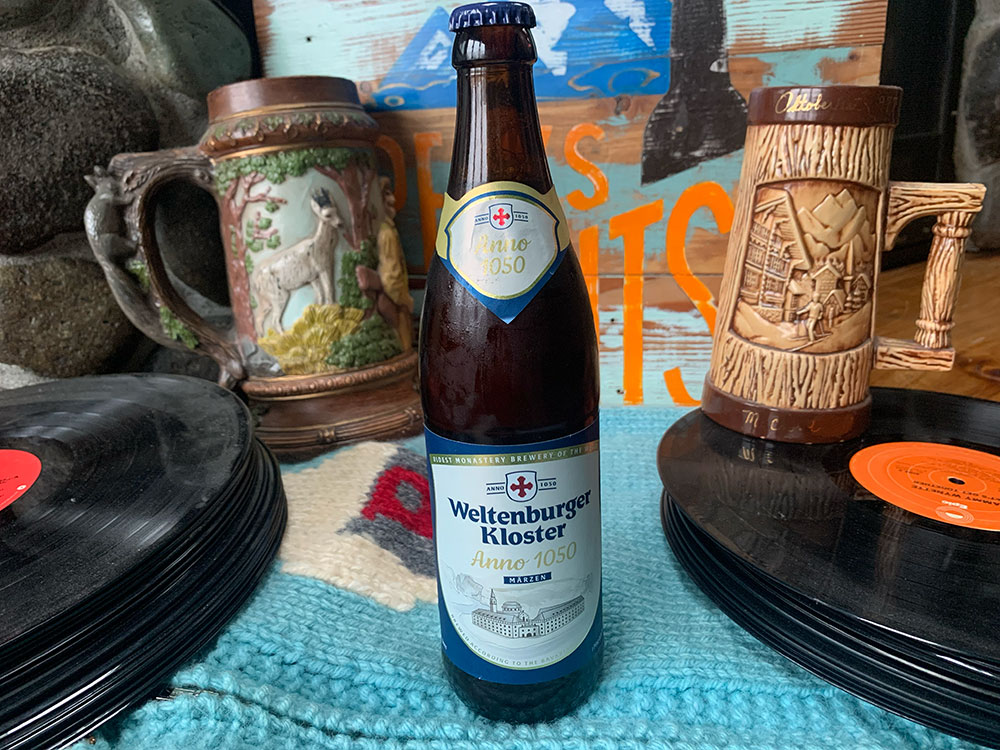 Weltenburger Kloster Anno 1050
Weltenburger Kloster Anno 1050
5.5% ABV
Bavaria’s Weltenburg Monastery brewery, the oldest monastery brewery in the world, having been established in 1050. Their Anno 1050 Marzen is a beer brewed to celebrate the anniversary of the Monastery. It’s no surprise the beer style chosen was a Marzen, which is a seasonal specialty beer that allows for some prolonged celebrating. Weltenburger Kloster‘s golden yellow Märzen combines an exceptionally fine scent with a light, fruity flavor. Full-bodied and spicy at the same time, the malt is emphasized from first sip to the finish.
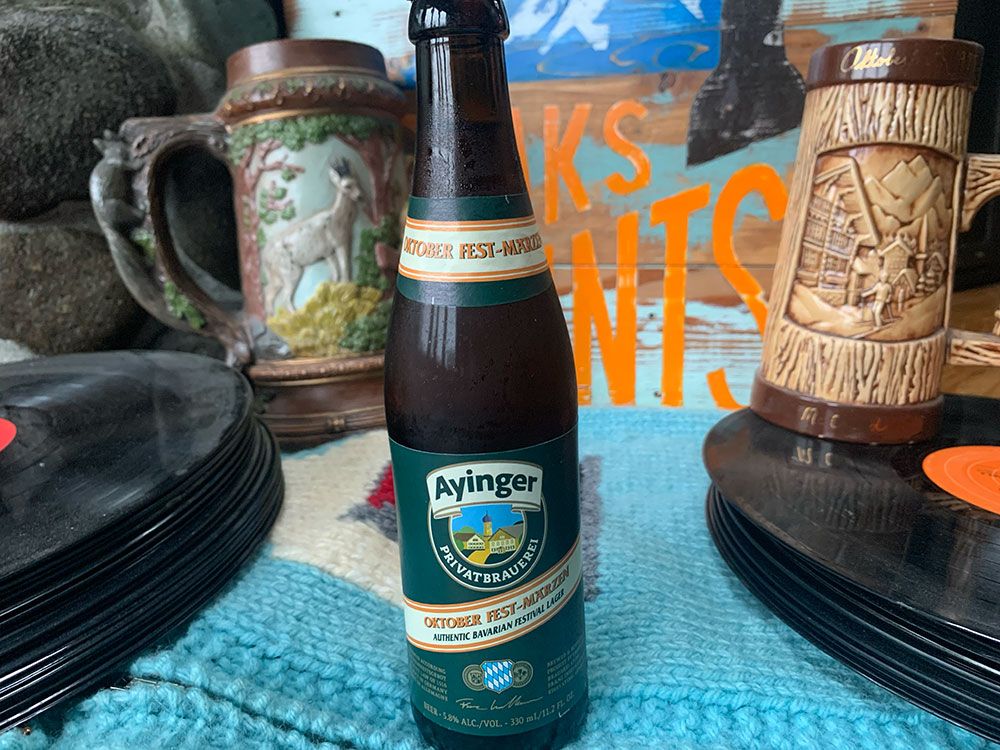 Ayinger Oktober Fest-Märzen
Ayinger Oktober Fest-Märzen
5.8% ABV
Sweet and grainy on the nose — think of fresh bread baked with honey and raisin — Ayinger Oktober Fest-Märzen features a pronounced sweetness of caramel and caramelized pumpkin on the palate. Hearty, and even a bit creamy as it warms, Oktober Fest-Märzen features a touch of bitter hops and fresh straw upfront before veering into a long malty finish. However, the beer dries out nicely to avoid a sticky or cloying aftertaste. This beer pairs beautifully with our pretzel bread sticks and side of beer mustard. Gemütlichkeit is, of course, free as always.
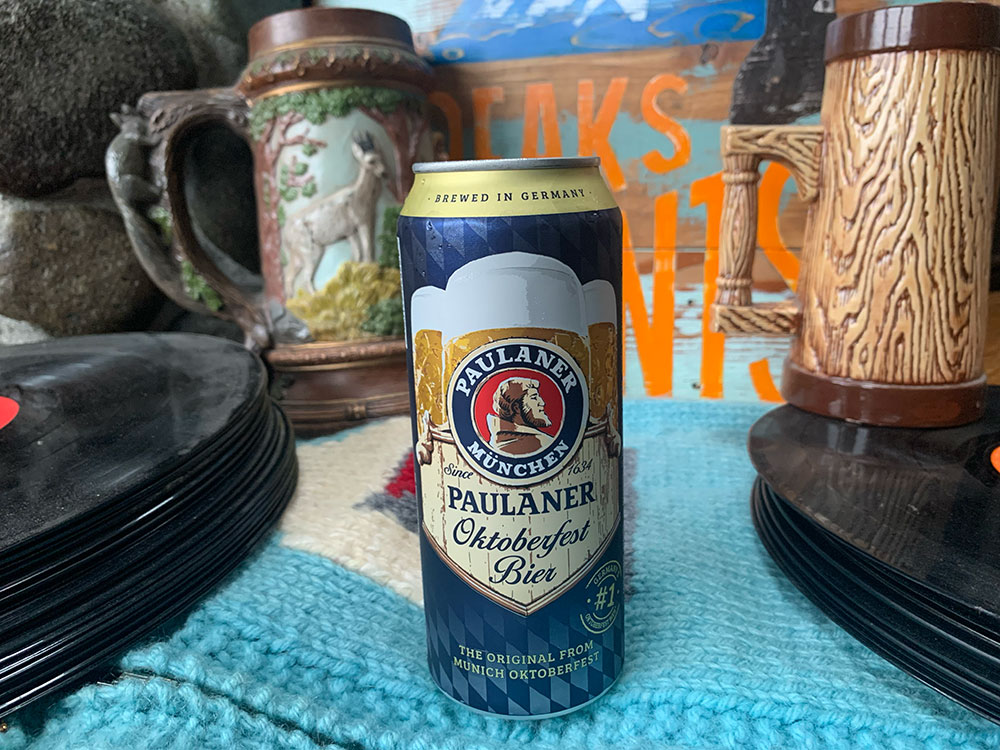 Paulaner Oktoberfest Bier
Paulaner Oktoberfest Bier
6% ABV
The Paulaner brewery is one of the largest breweries in Munich, Bavaria, in Germany, and is part of the Paulaner Brewery Group, which includes Hacker-Pschorr, Auer Bräu, Hopf and Thurn, and Taxis. Founded in 1634, Paulaner is one of the six brands allowed to be served at the world-famous Oktoberfest. Brewed once a year, and only available while supplies last, Oktoberfest Wiesn is the first festbier to be poured at Oktoberfest in Munich. It’s deep golden color, full-bodied and wonderfully mellow, with a balanced harmonious taste and the pleasant fragrance of hops.
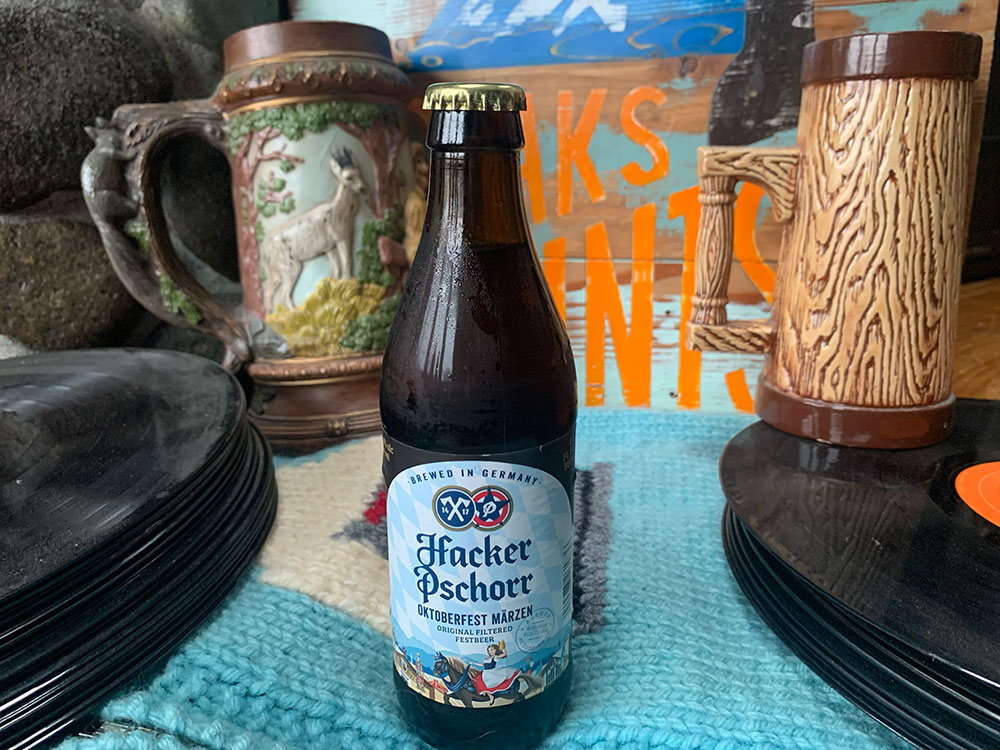 Hacker-Pschorr Oktoberfest Lager
Hacker-Pschorr Oktoberfest Lager
6% ABV
Hacker-Pschorr Brewery of Munich ranks among Germany’s oldest breweries. It was first mentioned in a document dating back to 1417 as “Preustatt an der Hagkagasse” (a brewing place in the Hagka lane), located on the site of the current Altes Hackerhaus beer hall at Sendlingerstrasse 14, halfway between the old city hall at Marienplatz and the Sendlinger Tor city gate. A brewer named Simon Hacker purchased the premises in 1738 and renamed it “Hacker Bräu” (Hacker Brew). In 1797, another brewery owner, Josef Pschorr, acquired control of Hacker Bräu by way of marrying Therese Hacker, but the two breweries remained separate entities until they merged in 1972 to form the Hacker–Pschorr Brewery. Hacker-Pschorr Oktoberfest Lager is the beer that they serve at The Oktoberfest. The aroma is buttered white bread roll, straw, cereal, cracker, spice, and hay. The taste is on the sweet side sweet with notes of white bread, grass, cracker, and cornbread with a dry-ish finish.
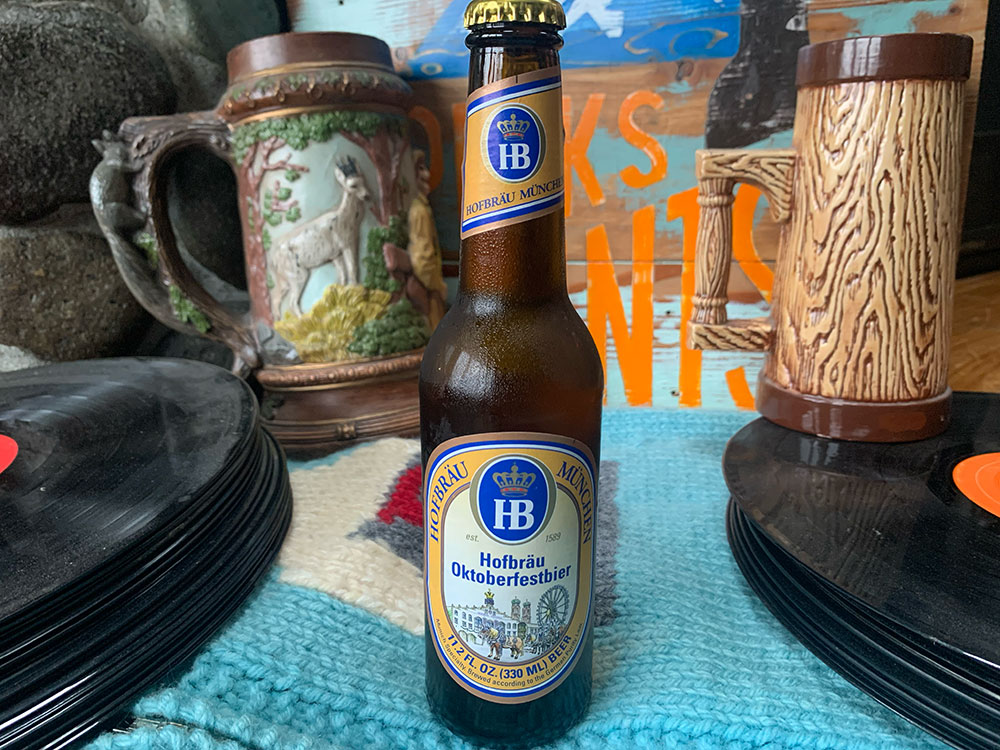 Hofbräu München Oktoberfestbier
Hofbräu München Oktoberfestbier
6.3% ABV
Wilhelm V, Duke of Bavaria wanted a wholesome brewery in Munich. The new brewery, Hofbräu München, lurched into action in 1592 in the city’s old courts building with brewmaster of Geisenfeld Monastery, Heimeran Pongratz, to plan and supervise the construction of Hofbräuhaus (the “ducal brewery”), and to be its first master brewer. The only beer produced at that time at the company to be called Hofbräu was brown ale. While the brown ale was brewed with barley, the duke’s successor to the dukedom, Maximilian I, preferred lighter wheat beers, and he promptly ordered the brewery to make them. By 1605, the facility was producing 38,000 gallons of beer per annum and couldn’t keep up with the demand. By 1607, a new, larger building had been constructed to house the brewing operations. By 1614, the brewery began making a darker, stronger beer called Maibock. King Maximilian I Joseph of Bavaria spared no expense when his son Ludwig married his beloved Theresa of Saxony-Hildburghausen and held a massive party for 40,000 guests on Oct. 17, 1810. Two years later, desirous of offering His Majesty a special beverage, the Hofbräu brewers started to brew a beer specially for the festival with a deep golden color, stronger original wort and higher alcoholic content, Oktoberfestbier, using four types of hops that are grown in Hallertau, a central Bavarian region: the bitter Herkules and Magnum varieties, and the milder, aromatic varieties of Hallertauer Perle and Spalt Select. On the tongue, this Märzen has buttered caramel, honey, red apples and toast on the front, while the back gains a floral noble hop bitterness.
LINK: Peaks & Pints beer and cider cooler inventory
